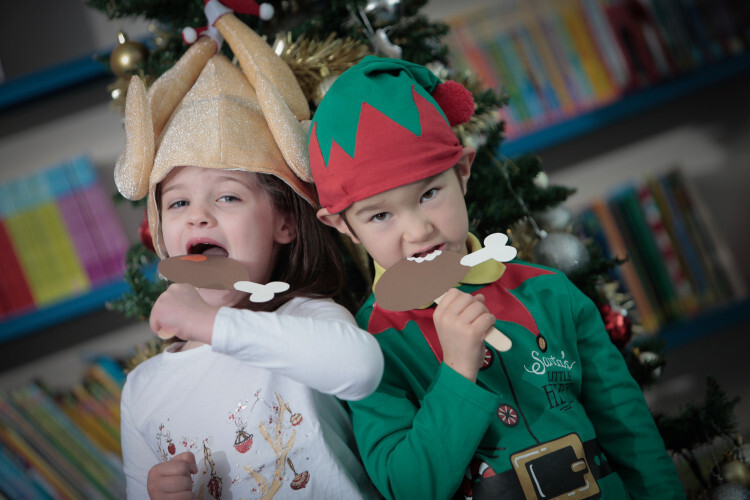News & Updates
Festive Food Safety is Child’s Play

50% of people in Scotland say they stick to what they learned as children when it comes to preparing and cooking food
- Only 45% claim to follow the correct food safety behaviour of never washing raw poultry, such as the Christmas turkey
- Washing turkey or chicken before cooking can spread harmful bacteria like campylobacter, the most common cause of food poisoning in Scotland
Primary pupils at Midmar School in Sauchen show how food safety is easy, and that not following good food hygiene practices when it comes to your Christmas dinner could put you and your family at risk of food poisoning over the festive season.
A Food Standards Scotland survey* revealed that only 45% of people in Scotland follow the correct food safety behaviour of never washing raw poultry, such as the Christmas turkey. Washing poultry is unnecessary as proper cooking kills harmful bacteria like campylobacter, and rinsing the raw meat will only splash harmful germs around the kitchen. Campylobacter is the most common cause of food poisoning in Scotland, and the effects can range from unpleasant to very serious illness**.
The majority of adults in Scotland (79%)*** are worried about the prospect of contracting food poisoning such as campylobacter and salmonella, but there are a number of common kitchen habits that may actually be putting them and their families at risk. Advice on safely preparing and cooking your Christmas turkey can be found at Food Standards Scotland’s Turkey Cooking Guide, which also has safe storage and reheating instructions for Christmas leftovers.
Jacqui McElhiney, Head of Food Protection, Science and Surveillance, said:
“Old habits die hard and while Christmas traditions are wonderful, some, such as washing the turkey like dad or gran always did, can do more harm than good by spreading harmful bugs around the kitchen.
“It’s also really important to make sure your turkey is cooked properly – follow any cooking instructions on the label and check that it is fully cooked through. Using a meat thermometer is your best bet to check that the meat is at least 75°C at the thickest part - it should be steaming hot, with no pink meat and juices that run clear.”
No one wants to be ill, particularly at Christmas. Follow our Turkey Cooking Guide at http://www.foodstandards.gov.scot/consumers/food-safety/at-home/turkey-cooking-guide for simple advice that will help reduce the risk of food poisoning.”